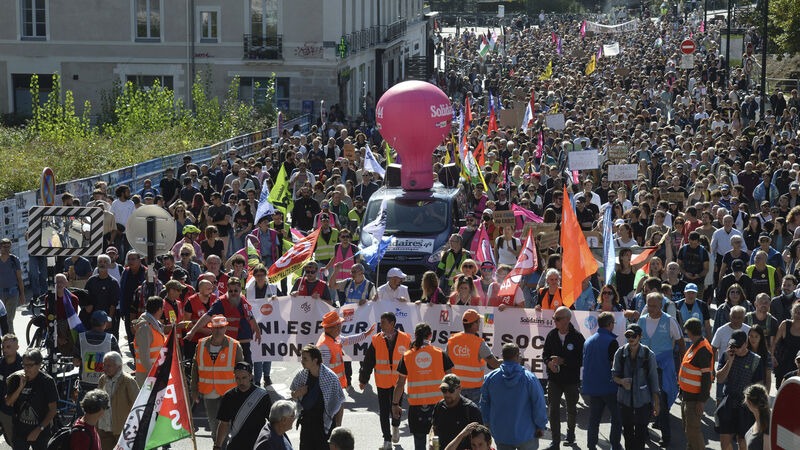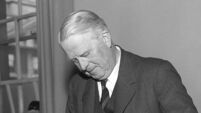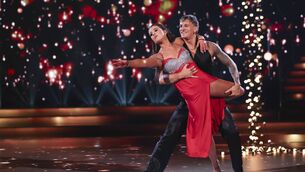Book review: A glimpse into far-right ideologies

Demonstrators march during a protest called by major trade unions to oppose budget cuts, in Nantes, western France, last month. Picture: Mathieu Pattier/ AP
- Fractured France: A Journey through a Divided Nation
- Andrew Hussey
- Gulp Fiction Books, £25.00
BOOKS & MORE
Check out our Books Hub where you will find the latest news, reviews, features, opinions and analysis on all things books from the Irish Examiner's team of specialist writers, columnists and contributors.







